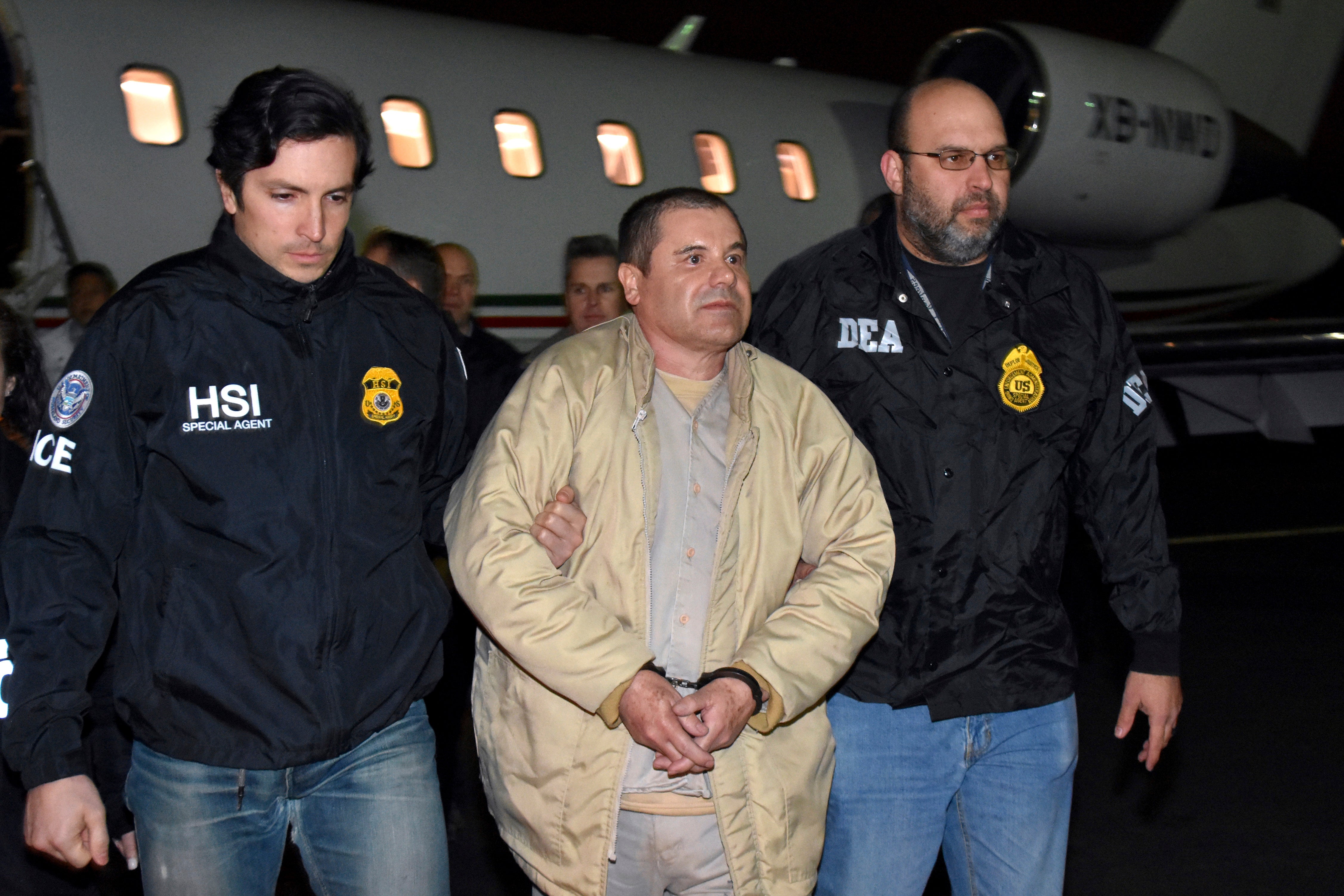Mexican drug lord Joaquín 'El Chapo' Guzmán claims he can't get calls or visits in a US prison
Joaquín “El Chapo” Guzmán now claims he can’t get phone calls or visits in the maximum security U.S. prison where the once most powerful Mexican drug lord is serving a life sentence

Your support helps us to tell the story
From reproductive rights to climate change to Big Tech, The Independent is on the ground when the story is developing. Whether it's investigating the financials of Elon Musk's pro-Trump PAC or producing our latest documentary, 'The A Word', which shines a light on the American women fighting for reproductive rights, we know how important it is to parse out the facts from the messaging.
At such a critical moment in US history, we need reporters on the ground. Your donation allows us to keep sending journalists to speak to both sides of the story.
The Independent is trusted by Americans across the entire political spectrum. And unlike many other quality news outlets, we choose not to lock Americans out of our reporting and analysis with paywalls. We believe quality journalism should be available to everyone, paid for by those who can afford it.
Your support makes all the difference.Mexico’s once most powerful drug lord, Joaquín “El Chapo” Guzmán is claiming he cannot get phone calls or visits in the maximum security U.S. prison where he is serving a life sentence.
Guzmán, who in the past was able to break out of Mexican prisons seemingly at will, wrote a letter to District Court Judge Brian M. Cogan in the Eastern District of New York in late March, complaining that he hadn’t been able to speak with his twin daughters.
He was convicted for running an industrial-scale drug smuggling operation and is serving his sentence at a maximum security prison in Florence, Colorado.
In May 2023, "the facility stopped giving me calls with my daughters. And I haven’t had calls with them for seven months,” Guzmán wrote. “I have asked when they are going to give me a call with my daughters and the staff here told me that the FBI agent who monitors the calls does not answer. That’s all they’ve told me.”
“It is unprecedented discrimination against me,” Guzmán complained. “They have decided to punish me by not letting me talk to my daughters.”
Guzmán also asked the judge to authorize a visit by his wife, Emma Coronel, but did not say when he was last allowed to see her. Coronel also pleaded guilty to drug charges in 2021 but was later released.
“I ask that you please authorize her to visit me and to bring my daughters to visit me, since my daughters can only visit me when they are on school break, since they are studying in Mexico,” Guzmán wrote.
Cogan responded last week, saying that once Guzmán was convicted, all arrangements are in the hands of the U.S. Bureau of Prisons, and that he had no power to intervene.
In his reply, Cogan also said that after his conviction, “the Bureau of Prisons became solely responsible” for the conditions of Guzmán's confinement and that the judge cannot change them.
“Accordingly, his request must be denied,” the judge said.
The letters were filed by the court to the case file, which is accessible to the public.
In December, Guzmán's 95-year-old mother died in Mexico's northern state of Sinaloa. She apparently had not seen her son since he was sent to the prison in Colorado.
Lawyers for Guzmán's family did not respond to messages requesting comment..
Guzmán led the Sinaloa cartel in bloody drug turf battles that claimed the lives of thousands of Mexicans. He escaped twice from Mexican prisons, once through a mile-long tunnel dug running from his cell.
After he was extradited to New York, his three-month trial included tales of grisly killings, political payoffs, cocaine hidden in jalapeno cans and jewel-encrusted guns.
There is also a chance he may one day see his son in prison. In 2023, Mexico extradited one of his many sons, Ovidio Guzmán López, to the United States to face drug trafficking, money laundering and other charges.
The younger Guzmán is believed to have led the Sinaloa cartel’s push to produce and export fentanyl to the United States, where it has been blamed for about 70,000 overdose deaths annually.